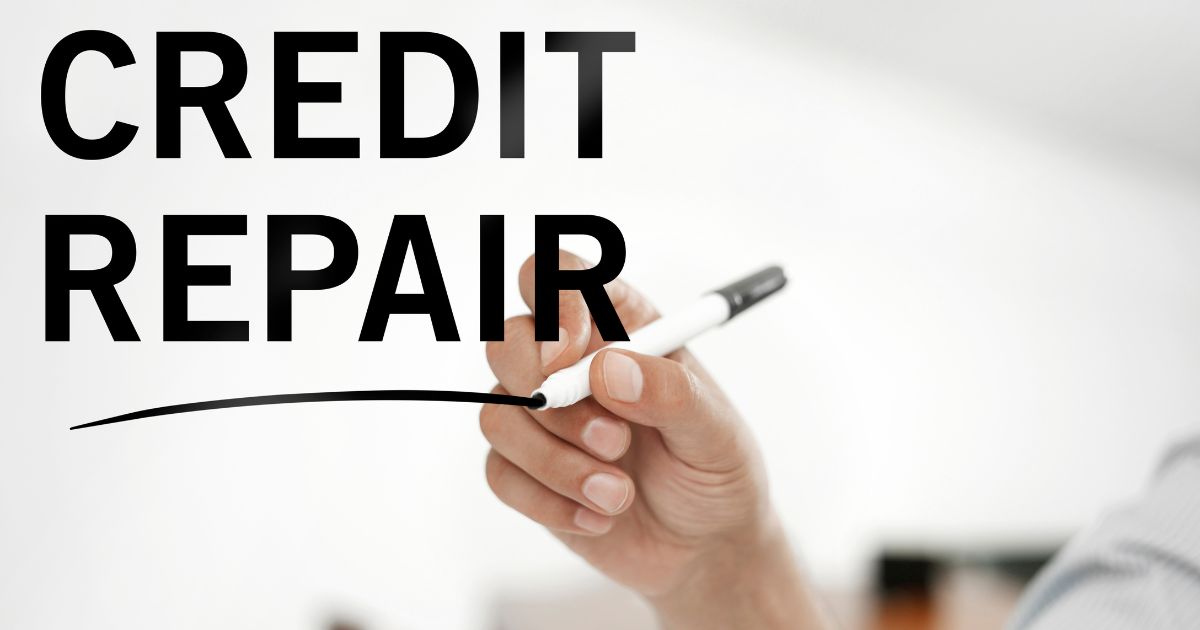How to Start a Credit Repair Business – Guide for Best Results
Are you eager to learn how to start a credit repair business and jump into entrepreneurship to help people enhance their financial well-being? Starting a credit repair business offers a promising avenue to achieve these goals. This guide will walk you through launching your credit repair venture. From understanding the basics to effectively marketing your services, we’ll cover everything you need to know to embark on this exciting journey of “how to start a credit repair business.” Let’s dive in and explore the world of credit repair together!

8 Steps to Start a Credit Repair Business:
1. Understanding the Credit Repair Business:
What Is a Credit Repair Business?
In simple terms, a credit repair business helps individuals improve their credit scores by identifying and disputing inaccuracies on their credit reports. By correcting errors and guiding clients on responsible financial practices, credit repair businesses play a vital role in helping people achieve their financial goals.
Why Is There a Demand for Credit Repair Services?
With an increasing emphasis on credit scores in various aspects of life, such as securing loans, renting apartments, and even getting hired for specific jobs, many individuals seek assistance in improving their creditworthiness. As a result, the demand for credit repair services continues to grow, presenting a lucrative opportunity for entrepreneurs.
2. Research and Planning:
Assessing the Market Demand:
Before diving into the credit repair business, conducting thorough research is essential to understand the demand for your services in your target market. Analyze demographic data, consumer behaviour trends, and competitor offerings to identify opportunities and gaps in the market.
Identifying Your Target Audience:
Who are the potential clients for your credit repair business? Are you targeting individuals with poor credit scores, first-time homebuyers, or entrepreneurs looking to secure business financing? Defining your target audience will help you effectively tailor your services and marketing efforts.
Creating a Business Plan:
A well-crafted business plan is a roadmap for your credit repair business, outlining your goals, target market, financial projections, and marketing strategies. Take the time to develop a comprehensive business plan that aligns with your vision and objectives.
3. Legalities and Regulations:
Licensing and permits:
Depending on your location and the specific services you offer, you may need to obtain certain licenses and permits to operate your credit repair business legally. Research the regulatory requirements in your area and ensure compliance to avoid any legal issues down the line.
Compliance with State and Federal Laws:
The credit repair industry is subject to various state and federal laws, including the Credit Repair Organizations Act (CROA) and the Fair Credit Reporting Act (FCRA). Familiarize yourself with these laws and regulations to ensure your business practices are ethical and compliant.
Understanding the Credit Repair Organizations Act (CROA):
CROA sets strict guidelines for credit repair organizations, including prohibitions on deceptive practices, upfront fees, and false promises. Ensure that your business operations adhere to the requirements outlined in CROA to maintain trust and credibility with your clients.
4. Building Your Skills and Knowledge:
Educating Yourself About Credit Reports and Scores:
To effectively help your clients improve their credit, you must understand how credit reports and scores work. Familiarize yourself with the factors influencing credit scores, common credit report errors, and the dispute process.
Learning Dispute Resolution Techniques:
Disputing inaccuracies on credit reports is a central aspect of the credit repair process. Invest time in learning effective dispute resolution techniques, including how to craft dispute letters, gather supporting documentation, and navigate communication with credit bureaus and creditors.
Staying Updated on Industry Trends:
The credit repair industry constantly evolves, with new regulations, technologies, and consumer trends shaping the landscape. Stay ahead of the curve by staying informed about industry developments, attending conferences and workshops, and networking with other professionals in the field.
5. Setting Up Your Business:
Choosing a Business Structure:
Decide on the most suitable legal structure for your credit repair business, whether a sole proprietorship, partnership, LLC, or corporation. Consider factors such as liability protection, tax implications, and operational flexibility when making your decision.
Registering Your Business:
Register your credit repair business with the appropriate government agencies, such as the Secretary of State’s office or the Department of Revenue. Obtain any necessary business licenses and permits to ensure compliance with local regulations.
Setting up A Dedicated Workspace:
Designate a dedicated workspace for your credit repair business, whether a home office, co-working space, or commercial office. Create an organized and functional work environment with essential tools and resources to support your business operations.
6. Developing Your Services:
Creating Service Packages:
Determine the range of services you offer your clients, such as credit analysis, dispute resolution, credit coaching, and ongoing credit monitoring. Develop comprehensive service packages that address your target audience’s varying needs and goals.
Pricing Your Services Competitively:
Establish competitive pricing for your credit repair services based on factors such as the complexity of the work, the level of expertise required, and market rates. Consider offering tiered pricing options or bundled service packages to appeal to different client segments.
Establishing Client Agreements and Contracts:
Create client agreements and contracts for your credit repair services to protect your business interests and outline clear expectations. Clearly define the scope of services, fees, payment terms, and responsibilities of both parties to avoid misunderstandings or disputes.
7. Marketing and Promoting Your Business:
Building a Professional Website:
Establish a solid online presence for your credit repair business by creating a professional website that showcases your services, expertise, and testimonials from satisfied clients. Optimize your website for search engines to improve visibility and attract organic traffic.
Leveraging Social Media Platforms:
Utilize social media platforms such as Facebook, Instagram, and LinkedIn to connect with your target audience, share valuable content, and promote your credit repair services. Engage with followers, participate in relevant groups and discussions, and run targeted advertising campaigns to expand your reach.
Networking with Local Businesses and Professionals:
Forge strategic partnerships with local real estate agents, mortgage brokers, financial advisors, and other professionals who frequently interact with individuals needing credit repair services. Attend industry events, join networking groups, and offer to provide educational workshops or seminars to establish credibility and generate referrals.
8. Providing Exceptional Customer Service:
Communicating Effectively with Clients:
Maintain open and transparent communication with your clients throughout the credit repair process, informing them of progress, challenges, and next steps. Listen actively to their concerns and questions and provide timely responses and updates to ensure a positive experience.
Managing Expectations:
Set realistic expectations with your clients regarding the timeline and outcomes of the credit repair process. Be honest and upfront about the limitations of credit repair and the factors that may impact results, such as the severity of inaccuracies and the responsiveness of creditors.
Going the Extra Mile to Ensure Client Satisfaction:
Strive to exceed your clients’ expectations by delivering exceptional service and value at every touchpoint. Offer personalized recommendations, educational resources, and ongoing support to empower your clients to take control of their financial futures and achieve long-term success.
Also Read: How to Start a Car Wash Business – Essential Steps and Tips
FAQs:
Is it legal to start a credit repair business?
Yes, starting a credit repair business is legal as long as you comply with all relevant laws and regulations, including the Credit Repair Organizations Act (CROA).
Is credit repair a profitable business?
Yes, credit repair can be a profitable venture. According to ZipRecruiter, the average annual salary of a credit repair specialist is $46,040. However, like any other business, your earnings can vary based on how you manage and structure your operations.
Do you need a license to do credit repair in California?
Yes, if you’re operating a credit repair business in California, you must obtain a Certificate of Registration from the Department of Justice. For application instructions, visit the A OAG website.
Is credit repair a high-risk business?
Yes, credit repair businesses are considered high-risk due to the prevalence of scam companies. Consequently, they often require a merchant or bank account that accepts high-risk businesses.
How much can you charge customers?
When developing your business plan, carefully research competitor pricing and fee structures, as well as your cost per acquisition. Larger, established organizations charge $90 to $125 per month while others charge a fee for each dispute they successfully settle. Industry leaders encourage new agencies to remain flexible, restructuring their pricing as the need arises.
How much profit can a Credit Repair Agency make?
Annual profit is directly tied to your fee structure and the number of clients you service every month. If you assist 200 clients who each pay $89 a month, that equals $17,800 in monthly revenue. If you reach $500 clients, you will earn a monthly recurring revenue of $44,500.
How can you make your business more profitable?
Agency owners looking to maximize profits will need to have a strong, targeted marketing strategy, hiring additional repair professionals to the team as the company begins to grow.
Conclusion:
Embarking on the “How to Start a Credit Repair Business” journey holds immense potential for personal satisfaction and professional triumph. With the insights and strategies this guide shares, you’re well-prepared to navigate the industry’s complexities. Your commitment to excellence and genuine desire to empower others financially will fuel your journey. With determination, you can establish a thriving credit repair enterprise that changes lives and fulfils your entrepreneurial dreams. Cheers to your success!


